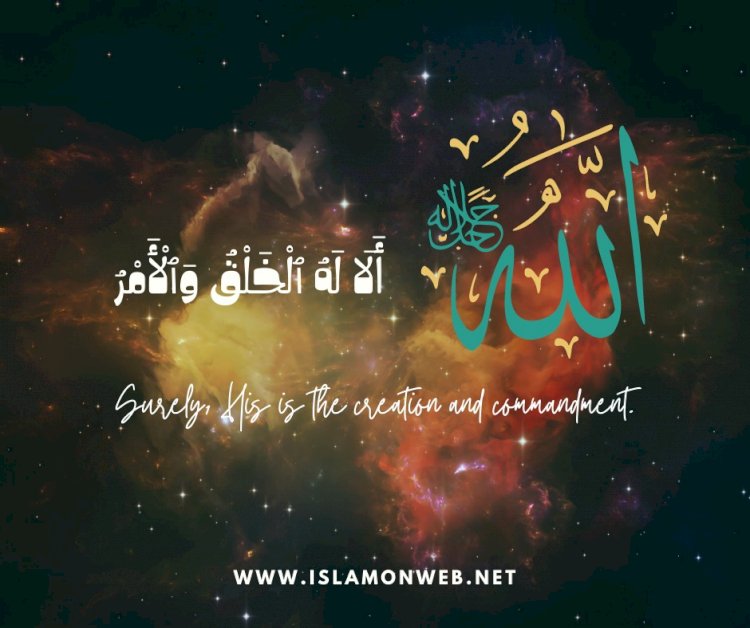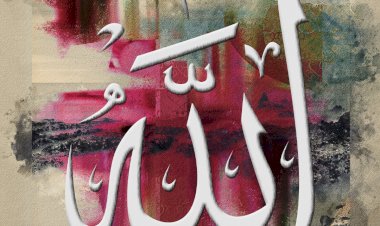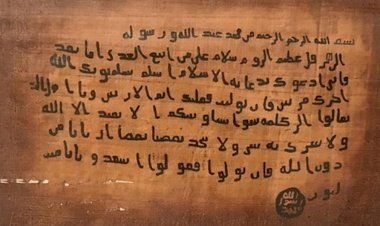Reminder from Allah: Panorama of Pandemic as a Parable
Maybe for many of us
Dīn is scheduled according to our life
Now it is time
To reschedule our life according to Dīn
NB: Don’t skip Quranic Āyāt in this article, they are the crux and axis.
Now, the world is back to normal. What was this pandemic for? This global calamity would not have happened without Allah’s permission. Quran puts forth: {Say: "Nothing will happen to us except what Allah has decreed for us: He is our protector": and on Allah let the believers put their trust} (al-Tawbah: 51). As mentioned in al-Aʿrāf: 54, every creation and command is from Allah, who alone we worship, and who alone we call on for help.
Can we consider this gravest situation as an intensive course or a powerful reminder from the Almighty to discipline our souls? Are there any silver linings in the dark clouds? Tribulations are for a purpose. The Quran sheds light on this aspect; {We shall certainly put you to the test in order to appraise your state and to see who among you are struggling strenuously and enduring patiently} (al-Quran, 47: 31).
Let’s reflect on what God wants us to acquire from this dreadful global crisis. Though the pandemic posed severe disorder to the world, we can reasonably perceive that the pre-pandemic world order was also in grave disorder and affected by infectious ethical viruses. Many people were treated with unpardonable injustice. Innocent people were killed and burnt to death. Some had to flee their homeland and start a new life in a new world but as a refugee. Based on religion, race, colour and ethnicity, citizens were treated differently as some were elite while some were second-class. Some endangered lives of several species and posed severe threats to the ecosystem. The pandemic made us taste the bitterness of disorder that millions go through without any reason around us on a daily basis. So, the lesson was to end injustice and contagious disorder around us according to one’s capacity. But, did the lesson hit us? {Reminder benefits the believers} (al-Dhāriyāt: 55). Or did we move to a festival of lusts once again and take no heed to the message left by the pandemic?
We were scared of infection and its concomitant risks. We kept ourselves as the top priority. We tried to take no chances. Nobody seemed to avail. It exposed our vulnerability, helplessness and susceptibility. Like in the Day of Judgement, {on that Day each man shall flee from his own brother, his mother and his father, his wife and his children. On that day, everyone will have enough concerns of their own} (ʿAbasa: 34-37). We forget the relationship and friendship and will be occupied in the struggles for self-survival.
The pandemic taught us to refrain from several harmful things and be extra-cautious in our choices and preferences. Absent-minded people’s risk was not trivial. Lockdown seemed like a gift as doors of several distractions and worldly pleasures were closed, and a believer enjoyed peaceful detachment, clear-heartedness, and days of solitary retreat. Our houses were brought to life by prayer, recitation, and online classes. Self-isolation helps us avoid infecting others with our poor character, and then it does the same for us from others.
In the pandemic, the frequent phrase Allahu Akbar (Allah is the greatest) unveiled its further connotations. Even in the face of calamity, Muslims are asked to say {We belong to Allah and to Him we shall return} (al-Quran, 2: 156). It simultaneously accentuates the inimitable sovereignty of Allah and the inherent vulnerability of human beings. The Quran says, {Allah wishes to lighten your burdens because humans have been created weak by nature} (al-Quran, 4: 28). Here, a virus that is too tiny to see caused the whole world to shut down and wreaked havoc on many aspects of life across the globe, the fact that evidently beams light on the limited human capacity and necessity of Super Power to rely on. Undoubtedly, the power of the so-called ‘superpowers’ of the modern world is more loudly questioned this time than ever before. The world was like the person whom the Quran called unjust and wronged his soul, who said {"I do not think that this garden will ever perish!”} (Surah al-Kahf: 35).
A believer has two wings; a wing of hope (rajā’) and that of fear (khawf). His life is a marvellous blend of two that equip him to stay afloat, sailing through the tides of life and get the shore. Somehow “hope for the best and prepare for avoid the worst”. 2020-2022 batch of humankind experienced the inevitability of this equilibrium. In the spiralling fear of a deadly pandemic, we hoped for safe survival on the grounds of Allah’s will and our precautions. Once again, we are assured that the only predictable thing about this world is that it is entirely unpredictable. Prophet’s advice is “Be in this world as though a stranger or traveller” (Saḥīḥ al-Bukhārī 6416).
Our prayers are seeds, and their fruits are to be sprouted in our lives. For example, harvest of fasting is God’s consciousness (taqwah) which is a profound closeness to God and awareness about His uninterrupted surveillance. “O believers! Fasting is prescribed for you, as it was for those before you, so perhaps you will become God’s conscious” (al-Quran, 2: 183). We can’t get the exact result of our fasting in this world; nonetheless, signs of result can be estimated by the degree of taqwah in post-Ramadan days. Thus, we can gauge if we have benefitted from fasting more than just thirst and hunger.
Luqman educated his son on some outcomes of prayer, which should be reflected if prayer is performed properly. “O my dear son! Establish prayer, encourage what is good and forbid what is evil, and endure patiently whatever befalls you. Surely this is a resolve to aspire to” (al-Quran, 31: 17). This verse revolves around three dimensions of a believer’s life which are prayer, care for others, and patience. If prayer buds its fruit in the form of care for others via advice, it is expected to be hit by obstacles that must be fought against by patience.
It is long overdue to dispel the myth and big lie of “I am busy” and “I don’t have time”. Those who spend 5-8 hours on social media are like throwing half or more of their awake hours in a day on something which is either not necessary or harmful for a good number of people. clockwise, what we have and what our early scholars had is the same. But the difference is in the quality.
Invest your time in Allah
Then your investment is Allah
What an investment it is!
Amid fast and unrest life, we got a pause to take a breath and to make sure everything is all right, and we are on the right track. On the road of life, it may propel many to relearn their faith and to double-check signboards to avoid speeding through the wrong route. We are on a voyage, seeking Him, the Supreme Answerer (al-Mujīb), navigating our faith and action.
Yes, our ship is worship to sail on. Definitely, work is worship if it is in seeking Him. Allah says, “Call upon Me, I will respond to you” (al-Quran, 40: 60). Any mindful effort for seeking ‘Him’ is the genesis of knowing ‘Him’, which is guaranteed of positive result because the reflection is from ‘Him’ who never breaks any promises. Allah says, “If you come to me walking, I will come to you running” (Ṣaḥīḥ Muslim 2687).
If you want to listen to Allah,
Read the Quran
If you want to talk to Him,
Start the prayer
See the caution in the Quran! When people in hell cry loud, “Our Lord! Take us out and send us back. We will do good, unlike what we used to do.” The response will be:
{Did we not give you long enough life so that he that would should receive admonition? And (moreover) the warner came to you.} (Fāṭir: 35)
Life is a leaf
That falls to its root
Because
It has to.
Disclaimer
The views expressed in this article are the author’s own and do not necessarily mirror Islamonweb’s editorial stance.
4 Comments
-

Firstly, thank you so much Dr Sayyed Muhsin for the guidance and ilmu you have shared with us. I believe we are all very blessed to be your students and we enjoyed your classes. As for the article, it is indeed true that we humans should always be mindful for rainy days. The pandemic has affected me on a very personal level because my sister’s wedding had to postpone, my father lost his job and I was diagnosed with severe depression. From there, I have learned that everything I have is a nikmah no matter how small it is to me right now because once its been taken, a lot of things can go to south. Will constantly improve myself as a student, a daughter and Muslim from now on because time is precious and we should strive to do things that are beneficial for us instead of lingering and attached ourselves to social media.
-

Thank you for sharing something useful for us. The verse that mentions about {Say: "Nothing will happen to us except what Allah has decreed for us: He is our protector": and on Allah let the believers put their trust} (al-Tawbah: 51), made a deep impression on me. May Allah bless all of us and be in the care of Allah SWT
-

Indeed, there is nothing more powerful than God. This pandemic showed us clearly that every single thing that we owned in this world will be lost in just the blink of an eye if Allah wills. So, remember that we are only as borrowers who are riding by the grace of his womb. Thus, don't be too proud and arrogant. Rather, use it in the right way, as Allah commanded. If we make taqwa as a pillar of our life, surely we will find true peace, no matter how life is.
-

This is another insightful article from Dr. Sayyed. It is no doubt that every test we go through comes with lessons that only those who think will harvest the benefits. If we don't learn from that trials, we will fall into the same pit of darkness over again and eventually become regretful of our actions like the inhabitants of the Hellfire. May Allah protects us from becoming one of the losers in the Hereafter.
























Leave A Comment